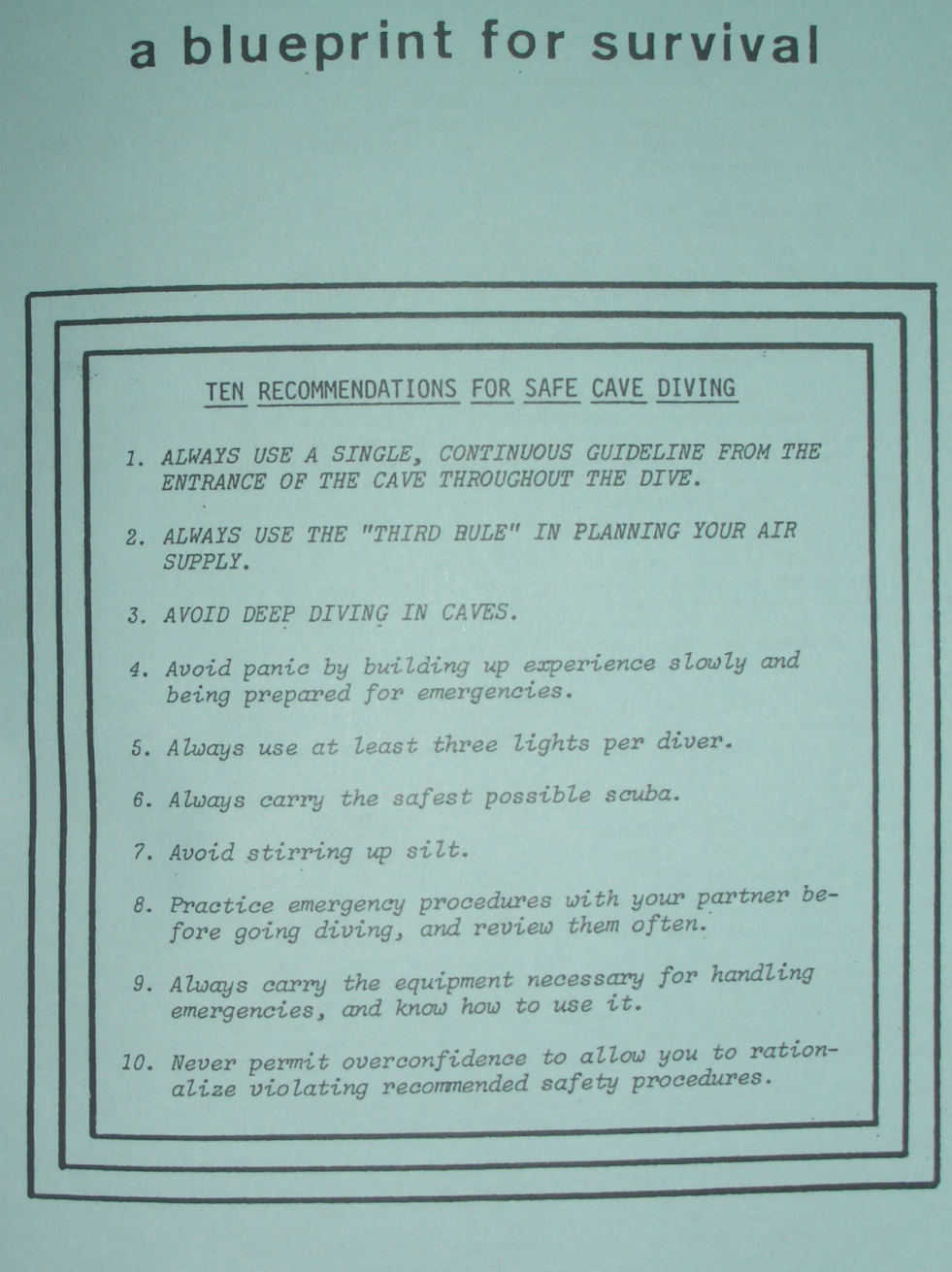R
redacted
Guest
You know, I'm with you on this and would add an eleventh item: Never Dive beyond your training. I think his book predated Cave C-Cards, or least most of the deaths he examined predated Cave C-Cards. I think the eye opener for me was to realize that all the deaths in the Eagle's Nest system were on dives where the decedent exceeded his training. You're a fool to enter that system without a Cave and a Tri-mix card.
Statements like this would be more credible if they were not mostly make by dive instructors who sell C-cards.
If one never pushed themselves beyond their training, how would anything advance beyond previous achievements?
Formal training and certification is one way to advance. It usually has the advantage of being efficient and low risk. I often has the disadvantage of being expensive and pre-packaged.
There are other alternatives some of which are essential to new discovery.
BTW, what happens if you breath tri-mix without a "tri-mix card"?





